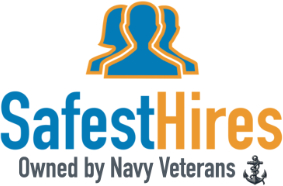Applying for a new job can feel like navigating a maze — applications, interviews, reference calls, and finally, the background check. For employers, each new hire represents a major investment in time, training, and payroll. In fact, hiring the wrong person can cost roughly 30% of that employee’s first-year salary.
That’s why background checks are such a vital part of the hiring process. They help companies protect their teams, ensure workplace safety, and make confident, fair hiring decisions.
At SafestHires, we make that process seamless — giving employers the accurate data they need while ensuring candidates are treated with respect and transparency.
Why Background Checks Matter
Nearly 94% of employers perform background checks. These screenings verify candidate information, help reduce hiring risks, and maintain compliance with federal and state laws.
Certain industries — such as transportation, healthcare, and education — are even required by law to conduct specific screenings before hiring. But even in unregulated industries, background checks are a best practice for any organization focused on safety, compliance, and integrity.
How Background Checks Work
Every employer’s approach is slightly different, depending on:
-
Industry and job type
-
Company size and resources
-
Location and local regulations
Since there’s no single database that contains every piece of information, most employers rely on trusted screening partners like SafestHires, which integrates data from over 2,700 digital courts and verified public records to deliver precise, FCRA-compliant results.
What Employers Look For
Under the Fair Credit Reporting Act (FCRA), employers must notify candidates in writing and receive consent before conducting a background check. Once authorized, employers may review several categories of information relevant to the role.
1. Criminal Records
Employers review misdemeanor and felony convictions — and, depending on state law, certain pending or dismissed charges. These records help assess potential risk and promote a secure workplace.
SafestHires’ AI-powered criminal database compiles accurate records nationwide for complete coverage.
2. Identity & Social Security Verification
Identity verification confirms that candidates are who they claim to be. A Social Security trace helps match data to a specific SSN, but identity validation ensures authenticity — critical in preventing fraud and misrepresentation.
3. Employment History
Employers often verify your past job titles, dates of employment, and sometimes reasons for leaving. SafestHires verifies up to three previous employers and offers both domestic and international verification for a stress-free experience.
4. References
Strong references help paint a clear picture of your work ethic and character. Many employers contact past supervisors or colleagues to verify professional strengths.
5. Education & Credentials
Education and license verification confirm degrees, certifications, and training. For specialized roles — like nursing, engineering, or law — credentials are essential to confirm qualification legitimacy.
6. Driving Records
If a position involves operating a vehicle, employers review your driving history to assess safety and reliability. SafestHires offers ongoing motor vehicle record (MVR) monitoring to support compliance and reduce liability.
7. Financial History
A Financial Risk Search is typically used for roles involving finance, management, or access to money and sensitive data. It will reveal if a person has been sued for defaulting on a credit obligation or filed bankruptcy.
8. Social Media Screening
Roughly 70% of employers review candidates’ public social media profiles. They look for professionalism, industry engagement, and cultural fit.
At SafestHires, we help ensure that social media reviews stay compliant with evolving state privacy laws.
What Employers Cannot Review
Even the most thorough background check has legal boundaries. Employers cannot access or use the following information in hiring decisions:
-
Medical records or health information
-
Political affiliations or religious beliefs
-
Gender, race, or marital status
-
Disabilities or medical conditions
-
Sealed or expunged criminal records
If you ever encounter inappropriate questions during a hiring process, document them immediately.
How to Prepare for a Background Check
You can take proactive steps to make your background screening stress-free:
-
Organize documentation. Keep copies of transcripts, pay stubs, and prior employment records.
-
Run a self-check. Review your own records through your state’s Department of Public Safety or DMV.
-
Audit your online presence. Ensure your public profiles reflect a professional image.
-
Contact references. Let them know they may be contacted and update their information.
-
Be transparent. If there’s something in your past that may raise questions, prepare to discuss it openly.
If an employer decides not to proceed based on findings, they must follow the Adverse Action process — providing written notice, access to the report, and an opportunity to dispute inaccuracies.
Drug Testing and Health Screenings
Some sectors, especially transportation, healthcare, and manufacturing, require pre-employment drug testing. These screenings are separate from background checks but often occur within the same hiring phase.
Final Thoughts: Transparency Builds Trust
Background checks aren’t about punishment — they’re about protection. They help employers build reliable teams and help candidates join organizations that value trust and compliance.
At SafestHires, 85% of background checks are completed within 24 hours, helping employers make faster, safer, and more confident hiring decisions — while giving candidates peace of mind every step of the way.


 November 4, 2025
November 4, 2025 





